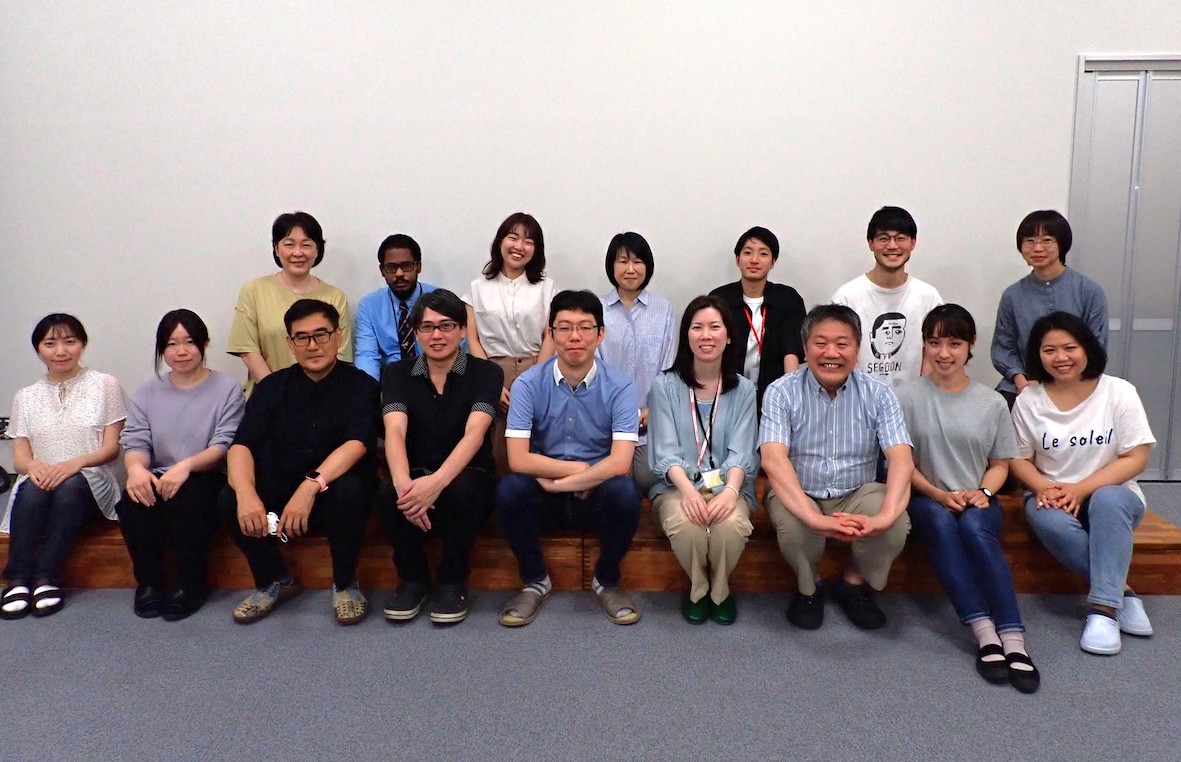Division of Molecular Pathobiology
Hokkaido University Research Center for Zoonosis Control (CZC) was established in April 2005 and reorganized into the International Institute for Zoonosis Control (IIZC) in April 2021. The Division of Molecular Pathobiology is the oldest division in the institute, and was established at the same time as that of the center. Our research mainly focuses on the mechanism of viral pathogenesis.
Currently, IIZC participates in the Program for Leading Graduate Schools, “Fostering Global Leaders in Veterinary Science toward Contributing to One Health”, as a coordinated course of the Graduate School of Veterinary Medicine, Hokkaido University. The WISE Program provides the course for expert training of zoonosis control, “Expert in zoonotic disease control”. The program develops scientific and practical expertise on zoonoses and related pathogens to produce human resources who take on the world leadership in the design and implementation of zoonosis control measures. Hokkaido University certifies students who fulfill all requirements necessary for the phD degree, and pass the Examination of the Zoonosis Control Expert Certification Program as a Doctor of Philosophy in the field of veterinary medicine and zoonosis control. Up to 2023, 56 Japanese, 67 non-Japanese have been certified, and 14 of these zoonosis control experts are carrying out research in our laboratory.
We support PhD students who can contribute to world public health/veterinary science development, play active roles as public health/veterinary science global leaders contributing to the healthy maintenance of man, animals, and the ecosystem under the One Health concept. Japanese government, JICA and Hokkaido University offer some financial support programs to foreign students such as The International Priority Graduate Programs (PGP), MEXT scholarship (Embassy recommendation), Hokkaido University WISE program and DX program, etc. If you are interested in our PhD course with these scholarship, please contact us by email.
Moreover, international collaborative research is actively carried out in our Laboratory. Hokkaido University established a faculty organization under the direct control of the President is to bring together world-class teaching staff from around the world and within the University. It aims to promote international collaborative research and education that leverages the University’s strengths and distinctive features, and to provide support for international collaborative research and education being furthered independently by faculties or schools. Within this organization the Global Station for Zoonosis Control (GSZ) has been established. In collaboration with the Global Institution for Collaborative Research and Education (GI-CoRE) members, the Research Center for Zoonosis control and the Graduate School of Veterinary Medicine has established a Consortium for the Control of Zoonoses in 2014.
We have continued long research collaboration with international researchers in African, Asian, European and American countries. The collaboration research between them is now focusing on various viruses in wildlife, mosquito-borne viral diseases, Rabies and COVID-19.
Furthermore, we have started collaborative research with researchers from pharmaceutical company Shionogi & Co., Ltd. in order to develop antivirals for common viral infectious diseases since 2013.
Division of Molecular Pathobiology aims to:
- Regarding intracellular responses caused by virus infection, promote basic research focusing on the mutual interactions between viral proteins and host proteins, elucidate pathogenic mechanisms by viruses, and develop therapeutic strategy for viral infectious diseases based on the obtained results
- Promote epidemiological research to examine the life cycle of viral diseases
- Cultivate human resources who will contribute to the prevention and control of zoonoses
Organizing research results into a report is a responsibility of a researcher, but establishing a report is not everything about research. Research involves constructing a tentative theory based on known facts of a phenomenon, planning experiment to prove that theory and then implementing the experiment. Next, one must interpret the results obtained from the experiment, and construct the next tentative theory. This thinking process is most important in research. Through the developments in science, we can understand life phenomena in greater detail. Life phenomena are deeper and more complex than we once thought. In our experiments, we analyze phenomena from various sides to understand complex life phenomena, and as a result, to find the truth.
At the research site, we view all our researchers equally, whether young or old, famous or undiscovered. Research is the ability to accurately interpret and determine scientific facts, and then organize an experiment to verify the fact.
In science, the more you know, the more new questions arise. With the view of investigating new questions, researchers must constantly pursue knowledge. I have to apply this to myself. Each step in research is modest and simple, and continuous effort is needed. I find great joy in research life when I see my team working hard and passionately exchanging ideas. This is the source of power in my research. From now, our division will continue to value our mutual teamwork while searching for interesting phenomena and seeking to improve by learning from others. To do so, I will personally fulfill my responsibility to create a research environment where active discussion is possible regardless of seniority, in pursuit of pure scientific knowledge.
We invite all students and researchers interested in our research to contact us at anytime.

Division of Molecular Pathobiology
Yasuko Orba (E-mail: orbay[at]czc.hokudai.ac.jp)

